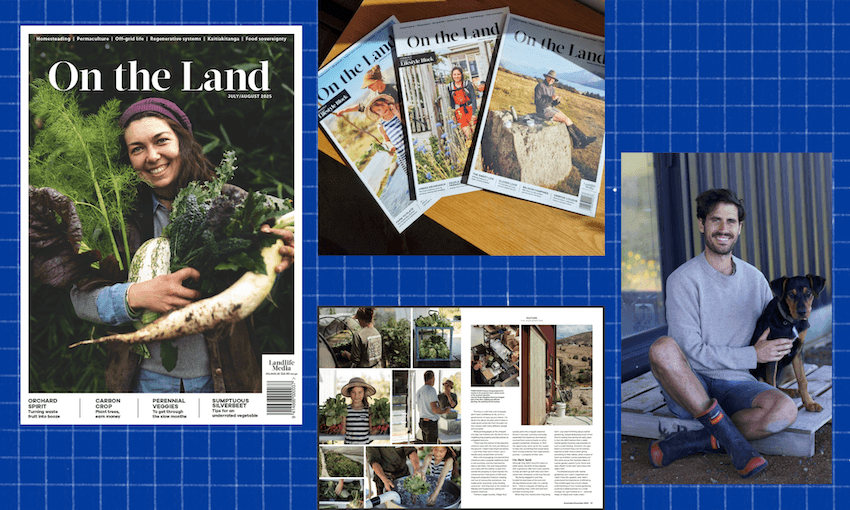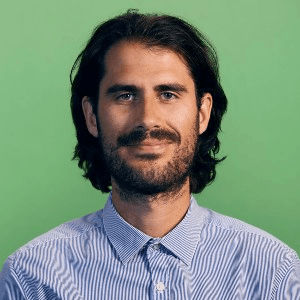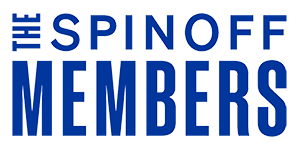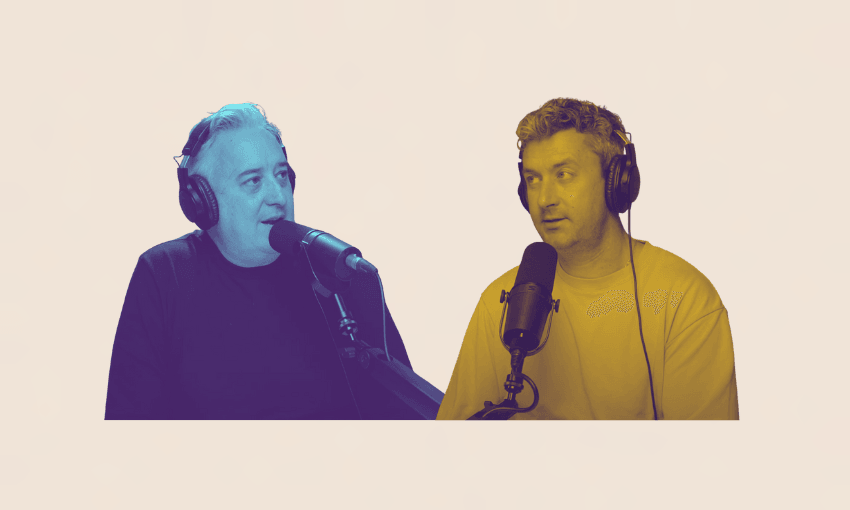A year after purchasing the ailing lifestyle magazine he edited, Michael Andrew reflects on the changes that have turned the title’s fortunes around – and one that almost proved a disastrous mistake.
Not long ago, when I told a new friend that I owned and ran a magazine for a living, she reacted as though I had just told her I had a serious illness. Her face screwed up, her eyes narrowed in sympathy, and then, in a soft, awkward voice, she asked: “How’s it going?”
It is not an unusual response.
At least half the people I tell about my job as a magazine publisher react with mild concern, certain that I’m teetering on the edge of financial ruin and disgrace, and that my children must be going hungry.
The other half respond with curiosity or excitement – usually the ones who have a nostalgia for magazines.
No matter their reactions, I always tell them the truth: It’s doing great!
Better than I hoped, in any case. In early 2024, when I was weighing the decision to purchase what was then called NZ Lifestyle Block – a monthly magazine dedicated to covering gardening and farming in rural NZ – financial performance was my main concern.
Magazines have been on the decline for decades, with many struggling to break even against a steady drain of revenue and a steady rise in production costs.
NZ Lifestyle Block was not bucking the trend.
But I had been the editor of the magazine for two years, and I loved it. I loved what stood for, I loved the wholesome, Country Calendar-like content, I loved the fastidious process of making it, and I saw potential in a so-called print renaissance.
I also believed, and still do, in Aotearoa’s burgeoning food-and-farming revolution – this dynamic and ardent movement of people who are changing their lives to establish deeper connections with the land and the food they grow and eat.
If the magazine was driven by such a worthy purpose as to champion this movement, I reckoned that the dollars would naturally fall into place.
Finally, I spoke with a number of learned advisors such as The Spinoff’s founder Duncan Greive and Here magazine editor Simon Farrell-Green, among others, all of whom said the same thing: buying NZ Lifestyle Block wasn’t a bad idea.
When you’re the owner/operator of a media business, they said, there are so many ways to make it viable: work 70 hours a week, work from home to save on unnecessary overheads, use contractors instead of employees, get family involved, do the ad sales yourself, do the social media yourself, hustle, hustle, hustle!
So I ended up buying the magazine in mid-2024 without any working capital, and immediately started doing everything my advisors had said, even bringing my retired mum on board to manage subscriptions. A year later, it turns out they were right – it’s perfectly achievable to make an indie magazine viable, even highly profitable, in a media crisis.
Reflecting on the performance of the magazine over the past 12 months, it all boils down to three valuable lessons.
1. Quality is key
People can tell when fresh energy is being poured into a product, just as they can tell when a brand is stagnant. One of the first things I did – with the help of a talented group of freelancers – was undertake a complete rebrand of the magazine, changing the frequency to bimonthly, increasing the page count, overhauling the design and investing in the quality of the storytelling and photography, particularly on the covers.
As soon as I did this, people began to notice and subscriptions started to grow; not just from the lifestyle block market, but from further afield.
Advertising sales started to grow too, as more businesses recognised the seriousness with which we were making content and targeting readers.
2. Never rush a big change
As part of a stable of magazines under the previous owners, NZ Lifestyle Block had languished without much digital presence in the years prior. It didn’t even have its own social media pages or websites.
I immediately created a website, a newsletter and some social media accounts, and declared, loud and proud, what the magazine was and what it stood for. A simple thing really, but again subscriptions started to grow and the money came in. That’s where I got the communication right.
Where I stuffed up was the speed with which I changed the name of the magazine itself. I never liked the “Lifestyle Block” masthead. It seemed frivolous, and failed to capture the huge range of farms, backyards, orchards and homesteads that were appearing in our pages. And so, after considering a wide range of opinions, I decided that the new name would be “On the Land”.
In an industry that depends on brand recognition, especially at the supermarket magazine stand, a poorly executed name change can be a death sentence.
I did not execute the name change well. Instead of doing months of planning and intensive marketing campaigns to spread the word, I rushed it, relying on my growing but still meagre social media following, the robustness of the new name, and a timely Seven Sharp appearance to achieve cut-through.
It turns out that many regular customers who didn’t follow me on social media were oblivious to the name change and couldn’t find the magazine at the stand. Retail sales for the first On the Land issue were disappointingly low.
The numbers eventually recovered as the depth and breadth of the new brand began to resonate, but it was a valuable lesson not to rush any big changes in this business.
3. A magazine needs a mission
Of all the lessons learned, this has been the most important. As soon as I bought the magazine, I let readers know that it wasn’t merely about sharing gardening tips or photos of fancy houses. It has a clear, fundamental mission to amplify Aotearoa’s food-and-farming revolution by sharing stories of inspiration, hope and community resilience.
This turned out to be a winning formula. Since I took over, subscriptions have climbed by 50%, and I regularly hear from readers praising the value of the magazine.
Many of them, irrespective of the type of property they have, align with On the Land’s mission and are eager to support something that offers solutions, in a small way, to Aotearoa’s food system woes. Better yet, they want to read those solutions on paper, rather than a screen.
Despite the growth, print media remains a high-maintenance business, one that needs to be lean and nimble to continue operating.
NZ Post has just executed another eye-watering price rise, and a slow economy means magazines are the first product omitted from the supermarket trolley, directly affecting our bottom line.
And yet, based on the journey so far, I know that the performance of the magazine is directly related to the energy I put into it, rather than external factors.
I’m confident that I can continue working 70 hours a week doing what I love, and that my children won’t go hungry anytime soon.





